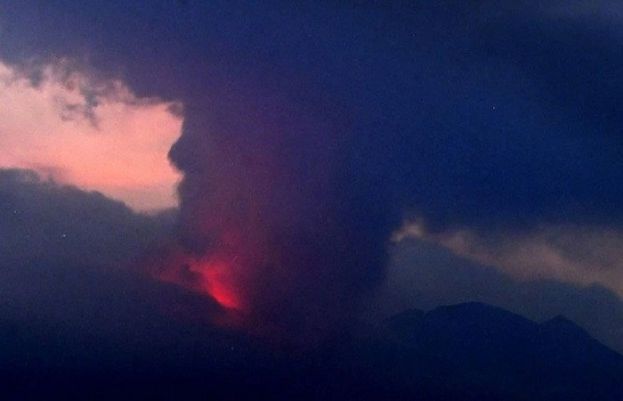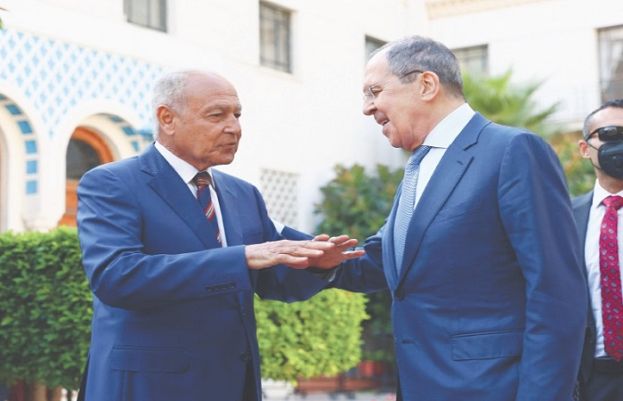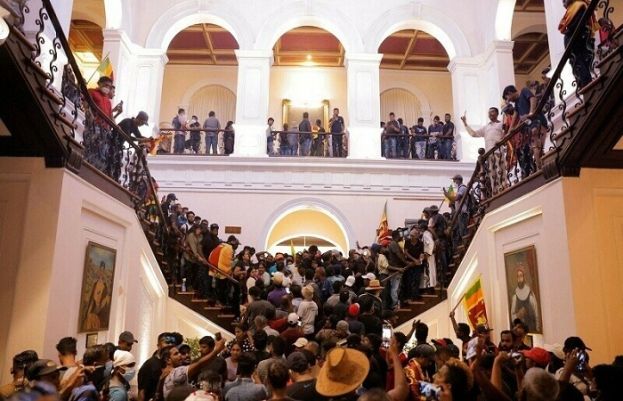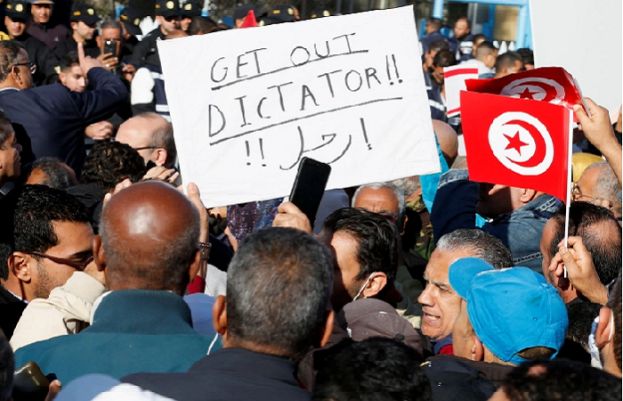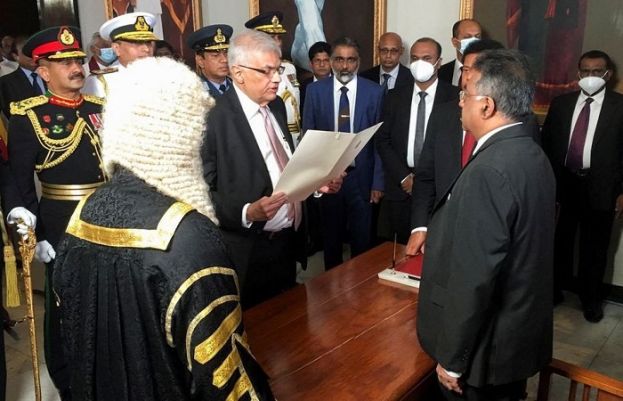Sri Lankan security forces raided and partially cleared a protest camp occupying government grounds in Colombo early on Friday, fuelling fears that President Ranil Wickremesinghe had launched a crackdown a day after being sworn in.
Media footage showed soldiers in riot gear and armed with assault rifles tearing down the camp, set up in April by protesters enraged by the country's economic collapse and acute shortages of fuel, food and medicine.
Wickremesinghe, a six-time prime minister, was sworn in as president on Thursday after winning a parliamentary vote to succeed Gotabaya Rajapaksa, who fled to Singapore last week in the wake of massive public protests triggered by Sri Lanka's worst economic crisis in seven decades.
"A joint operation involving the military, police and police special forces was launched in the early hours to recover the presidential secretariat from the protesters as they have no legal right to hold it," police spokesperson Nalin Thalduwa told Reuters.
Nine people arrested in the pre-dawn raid were later granted bail by a Colombo court, police said.
Protesters had feared a crackdown after Wickremesinghe as acting head of state on Monday imposed a national state of emergency. Many regard him as an ally of Rajapaksa.
Previous emergency regulations have been used to give powers to the military to arrest protesters and curtail the right to demonstrate.
A representative of the United Nations and Western envoys urged the government to exercise restraint, saying the use of force could further destabilise the island nation, whose economy desperately needs an International Monetary Fund bailout, having virtually run out of dollars to pay for vital imports.
The United States' ambassador to Sri Lanka, Julie Chung, said she had met the new president to express "grave concern" over the violence against protesters in Colombo on Friday.
"This is not the time to crack down on citizens, but instead to look ahead at the immediate and tangible steps the Government can take to regain the trust of the people, restore stability, and rebuild the economy," Chung said in a tweet.
Just hours after security forces moved against the protest camp, another Rajapaksa ally, senior lawmaker Dinesh Gunawardena, was sworn in as Sri Lanka's new prime minister.
Seventeen other ministers completed the cabinet, with former finance minister Ali Sabry becoming foreign minister, while sources said Wickremesinghe would keep the finance portfolio.
As Wickremesinghe, lawmakers and officials listened to Gunawardena being sworn in at the prime minister's office, uniformed military officers sat on one side of the room.
Angered by the pre-dawn raids, hundreds of protesters marched from the city's main railway station towards the Galle Face protest site, where military and riot police manning barricades held them back.
"The very first day he used the armed forces - this is the face of Ranil Wickremesinghe," said Rajeevkanth Rajkumar, a construction company executive who was among the protesters. "We don't want any more innocent people to be injured. But we will go to that place (the protest site) at any cost."
Opposition politician Anura Kumara Dissanayake, who lost the vote for the presidency, said on Twitter: "Let's bring down the brutal ... regime that viciously attacked the protesters at Galle Face".
Soon after midnight on Friday hundreds of security personnel had surrounded the "Gota Go Gama" protest camp, mockingly named after Rajapaksa, and then had begun to tear down tents in front of the secretariat, according to protest organisers.
Security forces appeared to have taken control of the entire secretariat, which was earlier this month seized by protesters along with the president and prime minister's official residences. The residences were later handed back to government authorities.
At least 50 protesters were injured in Friday's clashes, the organisers said, including some journalists who were beaten by security forces. Hospital sources said two were hospitalised.
"They beat us really cruelly," said Buddhika Abeyrathne, 34, a protester who witnessed the raid but did not appear injured himself. "Mr Wickremesinghe doesn’t know what democracy is."
